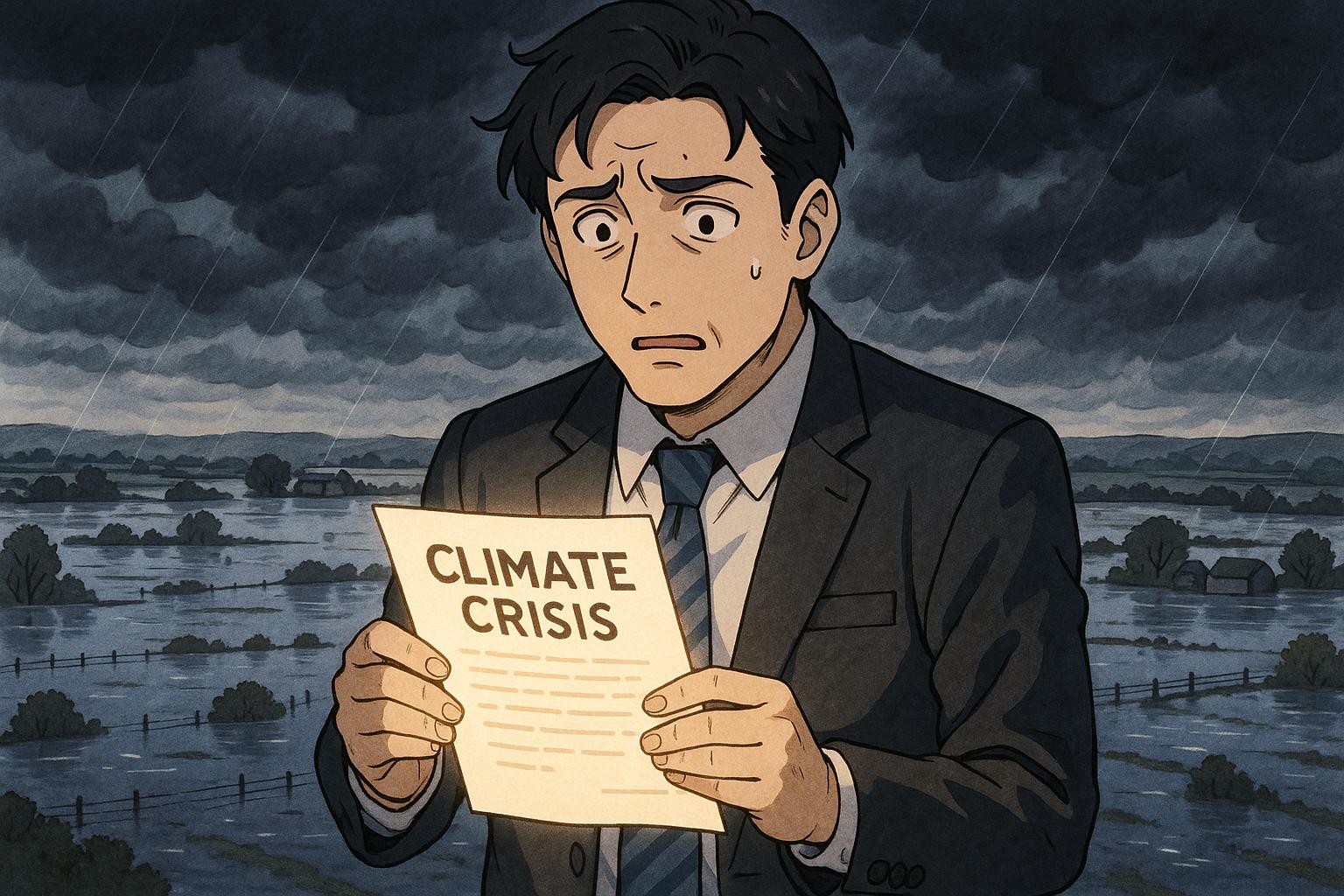Recent alarm bells have sounded within the UK food industry, signalling a looming supply chain crisis that could eclipse the difficulties brought on by the COVID-19 pandemic. At the centre of this warning is a startling memo released by Inside Track x Food, a collective of over twenty senior executives from major food manufacturers and retailers, who argue that the sector is severely unprepared for the existential threats posed by climate change.
The memo highlights “wishful thinking” within corporate strategies regarding climate resilience, calling for urgent action to counter vulnerabilities worsened by emerging climatic extremes. This assertion gains further urgency as data indicates that over half of England's agricultural land is now at risk of flooding, rendering the industry ill-equipped to handle increasingly unpredictable weather patterns.
The document contends that soil degradation, extreme weather events, and water scarcity are not abstract challenges but tangible threats that jeopardise the yield and quality of essential food supplies. As UK retailers face potential empty shelves, the group warns that reliance on single-crop sourcing from regions already endangered by climate impacts is particularly hazardous. The memo underscores that many companies approach these potential disasters with inadequate strategies, which are not only reactive but also lack robust investment and long-term thinking.
One key figure within the whistleblower group, identified as ‘Paul’, expressed deep concern, remarking, “If we don’t face up to this threat, my company’s not going to be here in thirty years... we won’t have a supply chain.” His perspective resonates with growing fears among industry insiders that immediate economic pressures often overshadow long-term strategic planning. Indeed, recent examples, such as the cocoa shortages that significantly drove up prices of chocolate products, illustrate how swiftly climate-related issues can lead to financial strain.
Experts also corroborate these concerns. The Met Office's 2023 report confirmed that last year was the second warmest on record, bringing record rainfall that devastated vital crop harvests across the UK. Flooding in key agricultural regions, notably during adverse weather events, has disrupted planting and visibility on crop yields. In parts of southern Spain, which supply a substantial amount of the UK’s winter fresh produce, unusual cold weather and storms led to mass shortages, rendering grocery shelves bare of tomatoes and salad crops.
In light of this looming crisis, the memo advocates for open dialogue and collective planning among food companies, echoing a collaborative spirit reminiscent of industry efforts during the pandemic. Executives like ‘Malcolm’, another member of the group, emphasise the need for unity in confronting the climate threat, asserting, "We’re just the tip of the iceberg in feeling there’s a lack of will... from the people leading our companies.”
The whistleblowers assert that current strategies employed by major food companies resemble a “tick-box exercise” rather than substantial action, suggesting that while some frameworks exist—like the Task Force on Climate-Related Financial Disclosures (TCFD)—they lack the enforceability required to drive meaningful change. The situation is exacerbated by an apparent reluctance to pivot from conventional thinking, leaving the industry vulnerable as climate-related risks escalate.
In a further illustration of the disconnect between the boardroom and the realities on the ground, the competitive nature of the UK food sector inhibits honest discussions regarding risks, with fear of repercussions leading to a culture where suppliers hesitate to report issues. This reluctance could prove detrimental as climate challenges escalate.
Meanwhile, the urgency of governmental involvement is underscored by progressive calls for comprehensive strategies to enhance food system resilience. Recent reports advocate classifying the agriculture sector as a critical strategic industry, urging the government to back initiatives that address climate-related challenges head-on.
While the food industry grapples with these existential threats, actions prompted by the whistleblowers could represent a pivotal moment for change. Investor awareness is being highlighted as vital; as Rachel Crossley from BNP Paribas Asset Management notes, “This moment is very significant. Investors should take it extremely seriously.” The pressure from shareholders could compel companies to adopt more sustainable practices quickly.
As the collective pleas from industry insiders echo through the boardrooms of major food corporations, the pressing question remains: will this clarion call galvanise the necessary transformation in resilience planning, or will it simply fade amidst the myriad of competing priorities within the food sector? The answer may significantly impact the future of food security in the UK, as the spectre of climate change looms larger.
Reference Map
- Core article on whistleblowers and the climate crisis in the food sector.
- Summary of the whistleblower group's warning about impending economic disaster due to climate change.
- Overview of significant threats the UK food industry faces from climate change.
- Insights into the impact of warming weather on food production in the UK.
- Urgent need for support in the UK agriculture sector for food security.
- Climate change's role in increasing food price volatility.
- National Farmers' Union concerns regarding sustainability risks in the food system.
Source: Noah Wire Services
